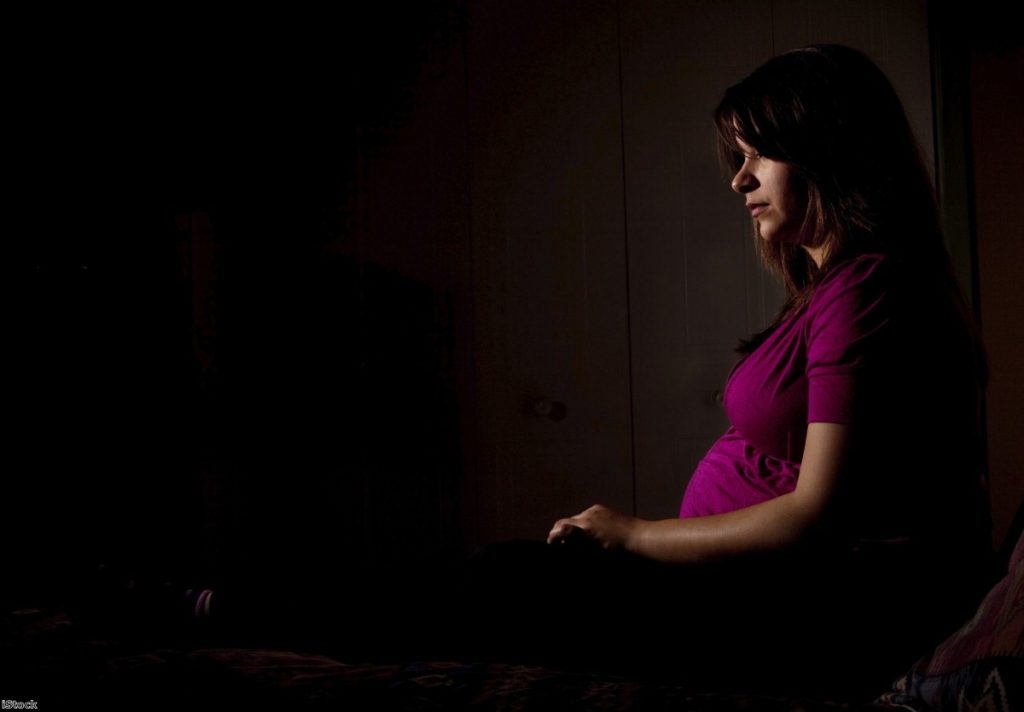By Patrick Corrigan
"I was an ordinary woman who suffered a very personal tragedy, which the law in Northern Ireland turned into a living nightmare." This is how Sarah Ewart describes what she went through in the autumn of 2013.
It was at her 19-week pregnancy scan when Sarah learned that her baby had anencephaly, a fatal abnormality where the brain does not develop and there is no skull. She was then given the news that her baby was likely to die before being born or shortly afterwards.
"All I kept thinking was 'our baby has no brain, she cannot live'" Sarah said. "I simply couldn't face it but the law in Northern Ireland meant I had no option but to go to England and take myself away from the care of the doctors and midwife who knew me. I was 23 years old and totally devastated."


The restrictive laws on abortion in Northern Ireland meant that Sarah had to travel across the water to England at a particularly distressing time of her life to have the procedure. Sarah's story is bitterly tough. Unfortunately, it is not unique. Because of its harsh laws, hundreds of women travel out of Northern Ireland for a termination. Last year, 833 women – an average of over two a day – made the traumatic journey to England. The alternative would be for a woman to stay and run the risk of receiving a life sentence if she attempts an abortion in Northern Ireland.
In April, a 21 year-old woman was handed a suspended sentence by a judge in Belfast after she bought 'abortion pills' on the internet to induce a miscarriage because she couldn't afford to fly to England. In the wake of that conviction, Labour’s shadow justice minister at Westminster Jo Stevens, and shadow foreign minister Diana Johnson, wrote to parliament's joint committee on human rights, urging action to reform Northern Ireland's laws. Although both justice and health are devolved to Northern Ireland, the letter pointed out that responsibility for adherence to human rights treaties sits squarely with the UK government.
What a day for Northern Ireland! Over 50,000 have now signed petition calling for #abortion law reform @ClaireSugden https://t.co/hqzqpGDrLz
— Amnesty Int'l NI (@AmnestyNI) June 21, 2016
Recently, the United Nations Human Rights Committee found that the Republic of Ireland's similarly restrictive laws prohibiting and criminalising abortion violated the human rights of a woman who had a diagnosis of fatal foetal impairment. This is the first time an international body has found a state to be in violation of its human rights obligations for criminalising and prohibiting abortion.
One may well expect that such a ruling would galvanise not only the Republic but their next door neighbours, Northern Ireland, to review and amend their laws. Instead, the Northern Irish Executive has so far dug in its heels and has this week commenced an appeal of a Belfast High Court Judicial Review decision. That decision, at the end of last year, ruled the abortion ban in cases of rape, incest or fatal foetal diagnosis to be incompatible with human rights law – specifically Article Eight of the European Convention on Human Rights, the right to family and private life.
At every level – local, regional and international – Northern Ireland's abortion laws are woefully out of step with human rights law and policy. The court of public opinion also stands on the side of human rights with polls showing seven out of 10 Northern Irish people back reform.
The existing abortion laws in Northern Ireland date back to 1861 – before the invention of the lightbulb – and are some of the most restrictive and punitive to be found anywhere in Europe. They ride roughshod over the rights of women and girls, and are in desperate need of reform.
Rather than pursuing endless litigation through the courts, the Northern Ireland Executive should be pursuing legislation through the Assembly to bring the region's laws into line with international human rights standards. Every day that it fails to do so is a further breach of the rights of women in the region. If Stormont's politicians continue to prove themselves incapable or unwilling to reform the region's abortion laws, the courts or Westminster may do it for them.
Patrick Corrigan is Amnesty International's Northern Ireland Director
The opinions in politics.co.uk's Comment and Analysis section are those of the author and are no reflection of the views of the website or its owners












